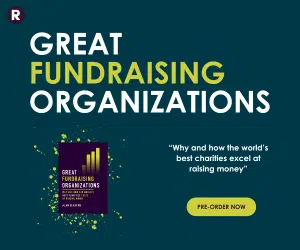What charity job seekers should keep in mind
Last week I posted a few ideas on how charities can think about their approach to recruitment. The objective being to both attract the right quality of candidate as well as the right personalities to work in the organisation. This blog represents the flip side; what can candidates do to get a fundraising role which they will most enjoy and be best at.
As in last week’s blog, I’m not going to regurgitate proven techniques around writing CVs, making sure you dress appropriately for interviews, completing standard application forms etc. Instead, here are a few ideas which hopefully build on the basics:
Do your homework. The charity sector is not a soft option and certainly not populated by mild-mannered, unambitious people. If you want a fundraising or communications role, find out what’s involved before you put yourself forward. Talk to recruiters to see what might be missing from your CV and ask how you can fill the gaps. The good thing about the charity sector is that most recruiters and charities will happily help you with this information.
Advertisement
Meet real fundraisers and charity people. There are lots of free events to attend where you can meet people and learn about how charities work. Sector bodies like the Institute of Fundraising and the Directory of Social Change offer loads of free information.
Follow charities on twitter, sign up to charity pages on FAcebook and generally use social media to learn about working in the sector as well as meeting people who may be useful later in your career.
Do what they ask you to. Recruitment processes can seem a bit long-winded. Standard application forms, supporting statements and CVs might all be required by a charity before you even get to an interview. Don’t be deterred and try to articulate your skills and experiences directly in the context of the role in question. A good approach is to look at the role profile or job description and try to find an example from your experiences to match against each skills requirement.
Be confident but not arrogant. Sorry, but you are unlikely to be God’s gift to the sector. Respect the fact that charities do a tough (and sometimes thankless) job and try to sympathise. Be clear about where your skills and motivations fit into what the charity is trying to do. – Don’t expect your skills from other sectors to translate automatically. You might need to volunteer or start in a role a bit lower down the ladder to build the relevant experience.
Don’t assume that skills learned elsewhere aren’t relevant. Think about how they can apply to the charity sector and use appropriate examples. Eg; budgeting for fundraising campaigns is a core skill that many commercial marketers will have already learned. Similarly, dealing with senior management or key stakeholders to get projects delivered is a useful skill across all sectors.
Don’t expect to earn a fortune. A cliché but true. That’s not to say these roles don’t pay well but there are a whole range of other financial, societal and experiential benefits on offer too.
Follow up your inquiries, don’t just send an email and expect them to get back to you. Be confident and helpful in your approach and don’t hassle the charity team.
Keep going and don’t take rejection personally. I know this sounds trite but it really is true. If you aren’t offered a particular job it’s probably because your skills and experience don’t exactly match what the charity is looking for. It doesn’t mean you’re rubbish and it does mean that you will match another charity’s needs somewhen in the future.
What do you think should be added to the list?




